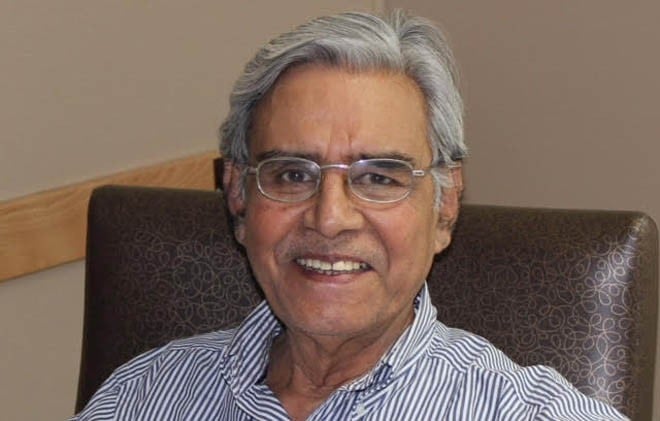
Naeem Shakir symbolised love for humanity, secularism and commitment to marginalised communities

My earliest encounters with Naeem Shakir (1944-2017) began in 1986 when he was in his prime and most optimistic. He remained optimistic throughout his life. Zia’s tyrannical rule was easing off. Jam Saqi, the veteran Sindhi leader of the Communist Party of Pakistan had been released after a prolonged trial, torture and detention. Saqi’s visits to different cities of Punjab were made into a hero’s homecoming celebrations by the left wing groups. The Faiz Peace Festival drew enough people to fill a good part of Railways Stadium of Lahore that year. These occasions were an opportunity to meet senior activists such as Shakir and his comrades, though briefly.
We sought Naeem Shakir’s help to get legal aid as well as to speak at conferences to make the public at large aware of the discriminatory laws, particularly against religious minorities. His Socialist Party was active on several fronts defending the rights of the marginalised sections of society.
I met Naeem Shakir again in 1992 when he was filing an appeal on behalf of Gul Masih, the first accused to receive death sentence under the blasphemy laws (Section 295-C, PPC). In later years, he provided legal assistance in several such cases because there were few who could brave threatening circumstances.
In 1993, my organisation Justice and Peace Commission had decided to boycott the General Elections because of the separate electorate that divided the citizens on the basis of religion. However, Shakir and his party came up with a legal strategy and invited us to revoke our plans for boycott. Abid Hassan Minto, Shakir’s leader and prominent jurist, outlined a strategy to use the lacuna in the constitution in order to challenge the system of separate electorate in the court. Shakir’s papers for candidacy for Punjab Assembly were filed on a seat reserved for Muslims in Lahore. The move was akin to Rosa Parks occupying a seat reserved for the whites in an Alabama bus in 1955.
The then Chief Justice of Pakistan, Nasim Hasan Shah, initially allowed Shakir’s candidature only to revoke it before the elections. The court held that allowing his candidature would make the entire electoral process questionable. Hence, although the legal strategy did not achieve its objective in the short run, it exposed the religious apartheid of separate electorates in the political order.
Later, when I was organising a boycott of the local government elections in 1999-2000 to oppose separate electorate, Shakir and his Workers’ Party supported the boycott readily.
Naeem Shakir made a great contribution by reviewing the Christian Marriage Act 1869 and Divorce Act 1872. When the National Commission on the Status of Women prepared the draft amendment bill for these laws in 2011, I was able to send my contribution only in writing due to my inability to join the meetings but Shakir had prepared a recast of the laws that enabled the team (Anis Haroon, Justice (Retd) Majida Rizvi and Justice Mehta Kailash Nath Kohli, Judge High Court of Balochistan) to proceed quickly with the drafts.
Shakir’s passing away on October 7, 2017 is not only a loss to his wife Beulah, daughter Uzma, son Khurram, his extended family including music maestro Mukhtar Paras and associates such as Abid Hassan Minto, Akhtar Hussain, Farooq Tariq, Bishop Samuel Azariah and Joseph Francis. He left thousands of people in grief who he worked with and many more that he worked for. While his mortal remains will rest in Louisiana USA, he will be remembered for his marvellous deeds in Pakistan.
Raised in his ancestral village Martinpur, Sheikhupura and educated at Forman Christian College Lahore, Shakir carried the essence of both urban and rural sensibility in him; a true villager who loved his Punjabi language, culture and arts. His learning at FCC was reflected in his love for reading and writing; his nuanced English, moreover, his larger-than-life vision.
If an example of a balance of priorities between love for humanity, secularism and one’s commitment to marginalised community is to be studied, there is one existing in Naeem Shakir’s life and his contributions. True to the meaning of his name, he was a man of great gifts and endurance.
Naeem’s contribution can be best acknowledged by passing the amendments to Christian Marriage and Divorce Acts in order to bring these laws at par with human rights standards and gender justice. The parliament should try to make an early progress on amendments to these laws.